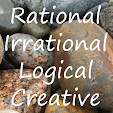NYT - Panel Said to Alter Finding on Voter Fraud
A federal panel responsible for conducting election research played down the findings of experts who concluded last year that there was little voter fraud around the nation, according to a review of the original report obtained by The New York Times.So to recap, a bi-partisan committee commissions some reports on voter fraud. They didn't like the findings so they rewrote them in such a way as to not really come to any conclusions at all. They determined that there was "a debate" and problems with definitions. Sometimes I think that if political scientists (and social scientists in general) couldn't argue over definitions anymore, we would just all have to quit our jobs and find something else to do.
Instead, the panel, the Election Assistance Commission, issued a report that said the pervasiveness of fraud was open to debate.
The revised version echoes complaints made by Republican politicians, who have long suggested that voter fraud is widespread and justifies the voter identification laws that have been passed in at least two dozen states.
Democrats say the threat is overstated and have opposed voter identification laws, which they say disenfranchise the poor, members of minority groups and the elderly, who are less likely to have photo IDs and are more likely to be Democrats.
Though the original report said that among experts “there is widespread but not unanimous agreement that there is little polling place fraud,” the final version of the report released to the public concluded in its executive summary that “there is a great deal of debate on the pervasiveness of fraud.”
[. . .]
And two weeks ago, the panel faced criticism for refusing to release another report it commissioned concerning voter identification laws. That report, which was released after intense pressure from Congress, found that voter identification laws designed to fight fraud can reduce turnout, particularly among members of minorities. In releasing that report, which was conducted by a different set of scholars, the commission declined to endorse its findings, citing methodological concerns.
[. . .]
The original report on fraud cites “evidence of some continued outright intimidation and suppression” of voters by local officials, especially in some American Indian communities, while the final report says only that voter “intimidation is also a topic of some debate because there is little agreement concerning what constitutes actionable voter intimidation.”
Maybe there were methodological problems, most studies have some methodological problems and those who don't like the results are always the first to find those problems. But I agree with Mr. Martinez's assessment of the situation:
“Methodology concerns aside, we commissioned the reports with taxpayer funds, and I argued that they should be released,” he said, referring to the delay in the release of the voter ID report. “My view was that the public and the academics could determine whether it is rigorous and if it wasn’t then the egg was on our face for having commissioned it in the first place.”Oh, and for those keeping score at home:
Democrats say there is little voter fraud
Republicans say there is wide spread voter fraud


No comments:
Post a Comment